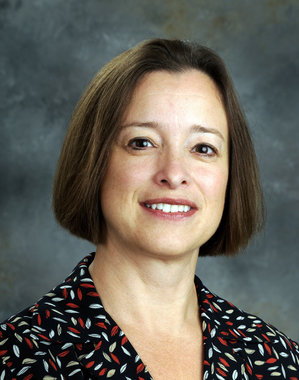June 2016

Biography:
Michelle obtained a B.S. (summa cum laude) in Biological Sciences from Michigan State University in 1990 and did her doctoral research with Dr. Gary Smith studying the phenotypic and genotypic changes associated with spontaneous neoplastic transformation of liver epithelial stem-like cells, graduating from UNC in 1996. She started at the National Toxicology Program (NTP) at the National Institute of Environmental Health Sciences (NIEHS) in 2000 and is now Chief of the Program Operations Branch.
What is your story? How did you get interested in toxicology?
When I was an undergraduate student at Michigan State, I had no idea what toxicology was. I was looking for a lab to join for an undergraduate research project and Keith Lookingland in the Pharmacology and Toxicology department took me in. I later worked for Jay Goodman.
What do you do now?
I have been at the NIEHS in RTP for around 16 years now. I head the Program Operations Branch (POB) at NTP which is comprised of chemists, toxicologists and information specialists involved in the study conduct portion of the NTP testing program. The members of POB oversee the management and performance of multiple analytical chemistry, ADME, toxicology, and information technology support contracts at laboratories/companies around the country. All of our work is team-based, drawing expertise of many scientists from different disciplines.
How did you get there?
I had a post-doc position at the EPA that served to expand my knowledge of toxicology. I knew I didn’t want to keep doing bench research by then. Afterwards, I was a staff scientist for thirteen years developing research programs to address a broad array of toxicological study needs for chemicals selected for study by the NTP and also coordinated the preparation and publication of the NTP Technical Reports
Where do you see the future of toxicology?
I’m sure many people say this but I think toxicology is moving towards more predictive, high-throughput methods.
Apart from the degree, what was the most valuable skill/lesson you gained from your time at UNC?
I really value the opportunities I had to practice communicating science to different audiences, writing and public presentation of research outside of the lab and communicating to the larger toxicology community through conferences such as SOT.
Any advice to current students/postdocs?
Meet people and network! Not only do you get to hear about all the interesting things other people are doing, but it also really expands and challenges your own work which can be very beneficial for your growth as a scientist. Getting involved in organizations like SOT can help you do this.
What do you enjoy doing in your free time?
I really enjoy watching sporting events, particularly football and basketball. Big Michigan State and UNC fans! I also enjoy spending time outdoors and traveling.